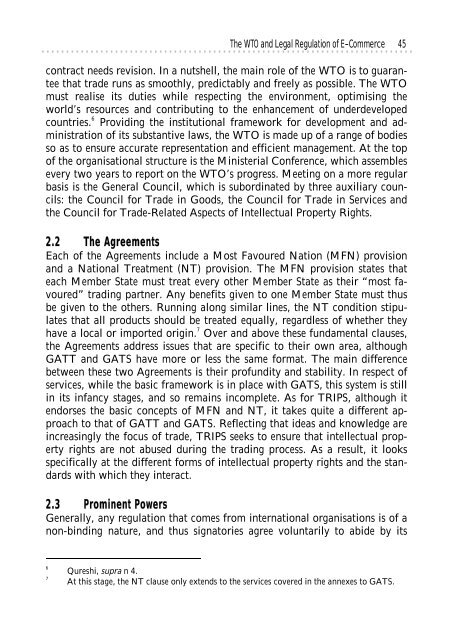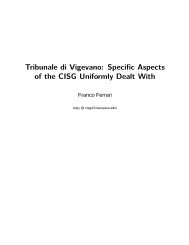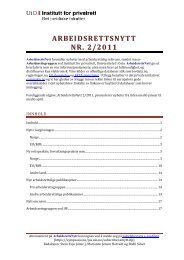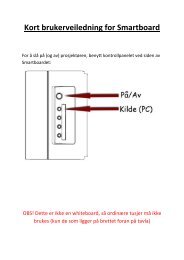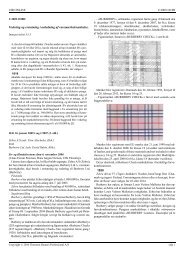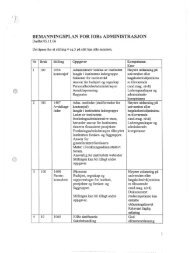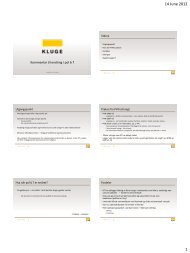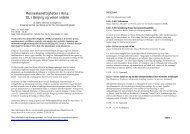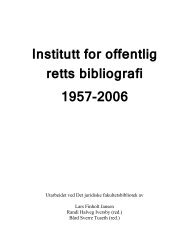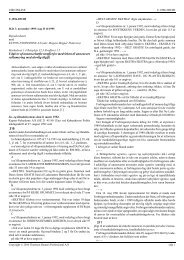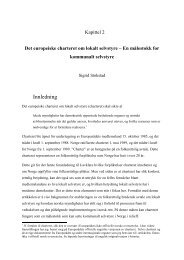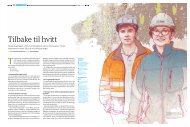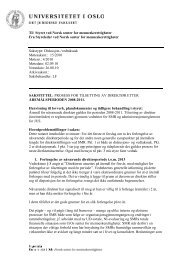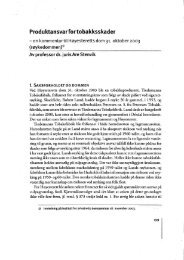Lee A. Bygrave (red.) YULEX 2002 - Universitetet i Oslo
Lee A. Bygrave (red.) YULEX 2002 - Universitetet i Oslo
Lee A. Bygrave (red.) YULEX 2002 - Universitetet i Oslo
You also want an ePaper? Increase the reach of your titles
YUMPU automatically turns print PDFs into web optimized ePapers that Google loves.
............................................................................<br />
The WTO and Legal Regulation of E-Commerce 45<br />
contract needs revision. In a nutshell, the main role of the WTO is to guarantee<br />
that trade runs as smoothly, p<strong>red</strong>ictably and freely as possible. The WTO<br />
must realise its duties while respecting the environment, optimising the<br />
world’s resources and contributing to the enhancement of underdeveloped<br />
countries. 6 Providing the institutional framework for development and administration<br />
of its substantive laws, the WTO is made up of a range of bodies<br />
so as to ensure accurate representation and efficient management. At the top<br />
of the organisational structure is the Ministerial Conference, which assembles<br />
every two years to report on the WTO’s progress. Meeting on a more regular<br />
basis is the General Council, which is subordinated by three auxiliary councils:<br />
the Council for Trade in Goods, the Council for Trade in Services and<br />
the Council for Trade-Related Aspects of Intellectual Property Rights.<br />
2.2 The Agreements<br />
Each of the Agreements include a Most Favou<strong>red</strong> Nation (MFN) provision<br />
and a National Treatment (NT) provision. The MFN provision states that<br />
each Member State must treat every other Member State as their “most favou<strong>red</strong>”<br />
trading partner. Any benefits given to one Member State must thus<br />
be given to the others. Running along similar lines, the NT condition stipulates<br />
that all products should be treated equally, regardless of whether they<br />
have a local or imported origin. 7 Over and above these fundamental clauses,<br />
the Agreements address issues that are specific to their own area, although<br />
GATT and GATS have more or less the same format. The main difference<br />
between these two Agreements is their profundity and stability. In respect of<br />
services, while the basic framework is in place with GATS, this system is still<br />
in its infancy stages, and so remains incomplete. As for TRIPS, although it<br />
endorses the basic concepts of MFN and NT, it takes quite a different approach<br />
to that of GATT and GATS. Reflecting that ideas and knowledge are<br />
increasingly the focus of trade, TRIPS seeks to ensure that intellectual property<br />
rights are not abused during the trading process. As a result, it looks<br />
specifically at the different forms of intellectual property rights and the standards<br />
with which they interact.<br />
2.3 Prominent Powers<br />
Generally, any regulation that comes from international organisations is of a<br />
non-binding nature, and thus signatories agree voluntarily to abide by its<br />
6 Qureshi, supra n 4.<br />
7 At this stage, the NT clause only extends to the services cove<strong>red</strong> in the annexes to GATS.


